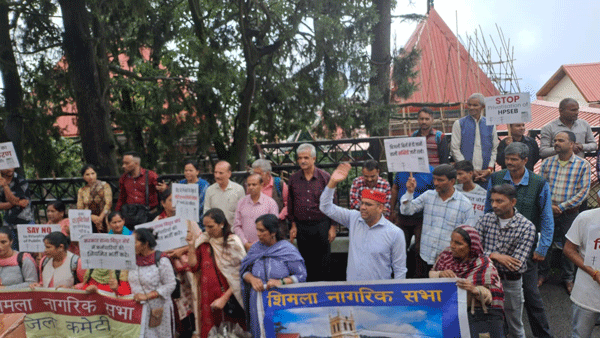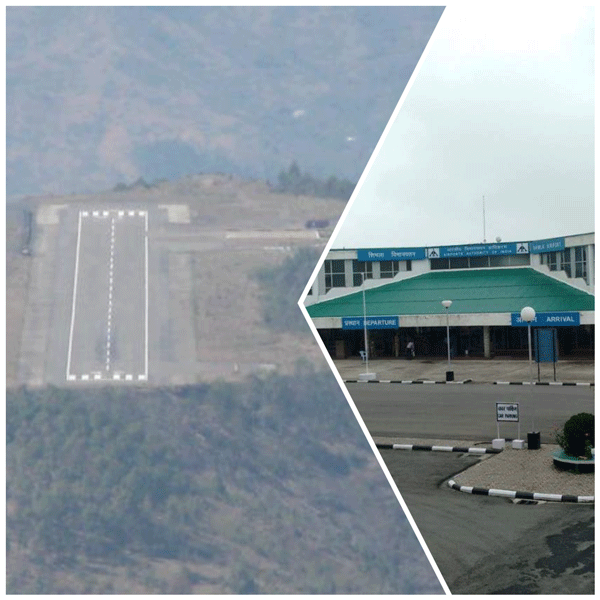
Shimla, Aug 28,
A strong demonstration was held outside the Deputy Commissioner’s office today by the Shimla Nagarik Sabha, protesting against the privatization of electricity, the implementation of smart pre-paid meters, and the contentious Electricity (Amendment) Bill, 2022. The protest saw the participation of numerous citizens, including prominent figures such as Sanjay Chauhan, Vijendra Mehra, Falma Chauhan, and many others.
The Sabha has raised serious concerns over the ongoing privatization efforts in the power sector, which began with the Electricity Act of 2003 under the Atal Bihari Vajpayee government. According to the Sabha, this legislation marked the beginning of the dismantling of State Electricity Boards and the gradual handover of the power sector to private companies. The current Modi government, they argue, is intensifying this effort, pushing the sector further into the hands of private entities.
The Electricity (Amendment) Bill, 2022, which has faced significant opposition, is seen by the Sabha as a continuation of these privatization policies. The bill includes provisions for the installation of smart pre-paid meters, a policy that has already seen significant implementation across the country. The central government has reportedly approved the installation of over 22 crore smart meters by December 2023, with approximately 10 crore already in place.
In Himachal Pradesh, the installation of these meters began in 2021 under the previous BJP government led by Jai Ram Thakur, with around 1,51,740 smart meters installed in cities like Shimla and Dharamshala. The current Congress government, under pressure from the central government, has also awarded contracts worth Rs 3,100 crore to private companies for the installation of 26 lakh smart meters across the state.
The Sabha expressed grave concerns over the impact of these smart meters on consumers, especially the poor and middle-class. They pointed out that unlike conventional meters, which cost between Rs 400 to 500, the new pre-paid smart meters are priced around Rs 9,000, a cost that will ultimately be borne by the customers. Additionally, the Sabha highlighted that these meters have a lifespan of only seven to eight years, and any repairs or replacements will further burden consumers.
One of the key issues raised by the Sabha is the potential for increased electricity bills, which could disproportionately affect low-income households. With the implementation of smart meters, consumers may face higher electricity rates, they claim. Moreover, even the 125 units subsidies currently provided to the poor and middle-class is also being revaulated now. The Sabha also warned that the introduction of differential pricing for electricity during day and night hours could further strain household budgets.
Futher, the Sabha argued that the smart meter scheme is a step towards full privatization of the power sector. They believe that once private companies control the distribution of electricity, the technical staff of the State Electricity Board will face job losses, and the pensions of retired employees could be jeopardized.
The Shimla Nagarik Sabha has called on the public to unite against these policies, urging them to protest the privatization of the power sector and the implementation of the Electricity (Amendment) Bill, 2022. The Sabha emphasized the need to resist the central government’s push to privatize electricity and the state government’s compliance with these directives. They warned that if these policies are not halted, the power sector could be entirely privatized, leaving the general public to bear the brunt of increased costs and reduced access to electricity.

The HimachalScape Bureau comprises seasoned journalists from Himachal Pradesh with over 25 years of experience in leading media conglomerates such as The Times of India and United News of India. Known for their in-depth regional insights, the team brings credible, research-driven, and balanced reportage on Himachal’s socio-political and developmental landscape.










